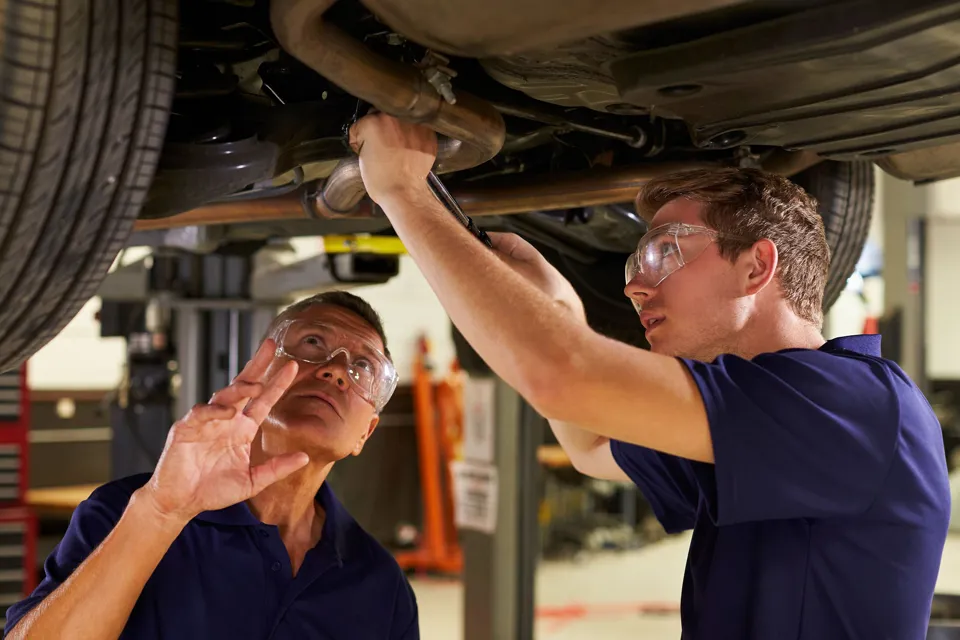The IMI has called for further development in EV skills training, following the Government’s response to the Business, Energy and Industrial Strategy (BEIS) Committee's Electric vehicles: driving the transition report.
This week Government refused to make any commitments or clarifications of its policy towards the transition to electrified mobility in its response to the report and instead suggested the change should be industry-and consumer-led.
IMI’s chief executive, Steve Nash, said: “The response to the BEIS Committee report is confirmation that Government must work with businesses to help workers develop their skills when it comes to new vehicle technology.
"There must be more focus on the skills needed if the UK is to become a world-leader in the manufacturing and repairing of electrified vehicles."
Sales of electric, plug-in hybrid and hybrid vehicles have seen a sharp increase of 21% since 2017, and with only around 3.5% of the UK’s 188,500 vehicle technicians currently qualified with the skills to service and repair the high voltage components of this technology the IMI is backing the BEIS Committee’s recommendations to grow EV-specific qualifications for motoring technicians across the sector.
Nash said: “As the professional body for the automotive industry, the IMI is well placed to help Government understand the challenge of making sure that vehicle maintenance and repair is carried out in a professional and safe manner for both technicians and drivers.
"It’s essential that Government and business work better together to embrace the opportunities that come with new technology; however an appropriately skilled workforce must be regarded as a prerequisite to achieving those opportunities.”
The IMI has announced that they will be hosting an Electric Vehicle Advisory Group meeting on February 5 at the head office in Hertfordshire.
Attendees from across the industry will be working together to develop a Professional Standard that will safeguard the UK’s workforce of technicians by ensuring they are well trained and have the skills they need to repair electrified vehicles safely.
“By bringing together a committee of experts from across the motor industry to discuss, agree and develop Electric Vehicle Professional Standards, we can then provide the appropriate benchmarks and recognition for individuals to work towards, supported by the appropriate quality of training,” said Nash.
“In doing so we can create the expert, skilled workforce needed to support the next generation of vehicles.”
The Government has also come in for criticsim after ignoring calls to bring forward the 2% BIK rate for pure EVs from April 2020 to April 2019 in its response to the BEIS report.
AM's sister title, Fleet News, reported that the Government had chosen not to follow the committee’s recommendations for a preferential electric vehicle rate for VED and to bring forward the planned lower rate of BIK.
The latter was something many in the fleet industry had called for and was a key point in the Fleet News Budget Manifesto.
In its formal response to the report, the Government argued that the tax system means company car drivers already receive “a significant discount compared to a conventionally fuelled alternative”.
The Government did, however, state that it would introduce new tax bands from 2020-21 that “focus incentives on the very cleanest cars that allow most journeys to be zero emissions”.
Rachel Reeves MP, chair of the BEIS Committee, said: "The Government continues to fail to match its own rhetoric in encouraging people to switch to electric vehicles.
“The Government’s response to the BEIS Committee’s report highlights once again the lack of ambition and vagueness of the UK Government’s targets on zero-emissions vehicles.”
Gerry Keaney, chief executive of the British Vehicle Rental and Leasing Association (BVRLA), said: “By failing to change the tax regime now to incentivise the uptake of electric vehicles, government is missing the opportunity to drive change quickly.
“It is disappointing to see an ongoing lack of alignment between its taxation policy and its wider environmental ambitions.”
The BVRLA said that it will continue to engage with Parliamentarians, officials and other stakeholders on this issue.














Login to comment
Comments
No comments have been made yet.